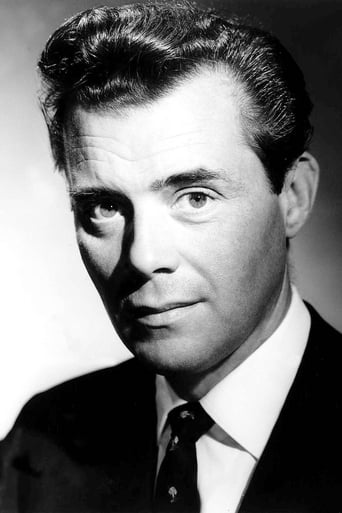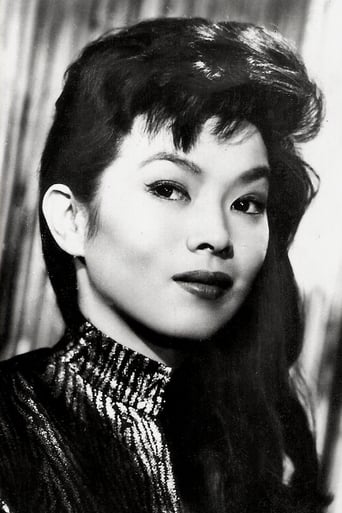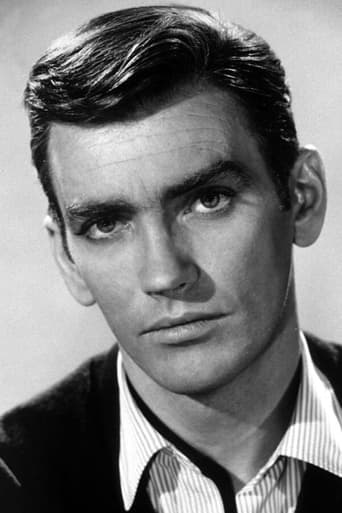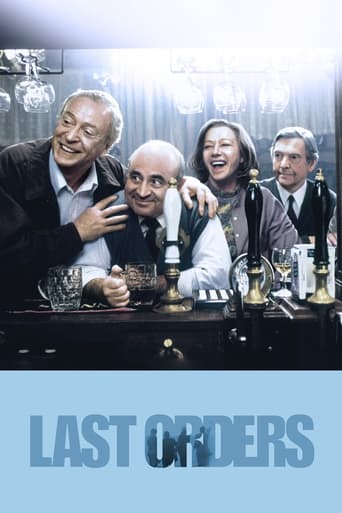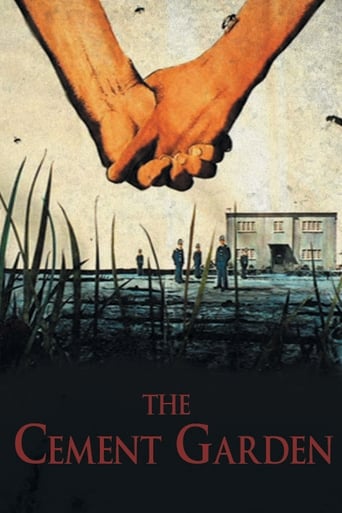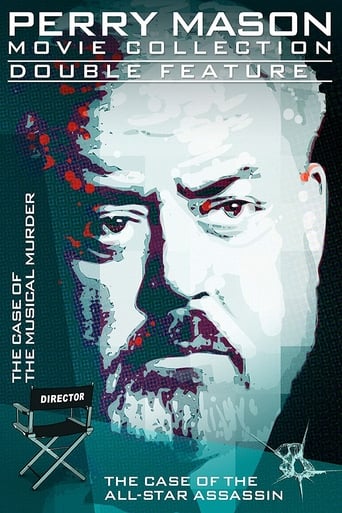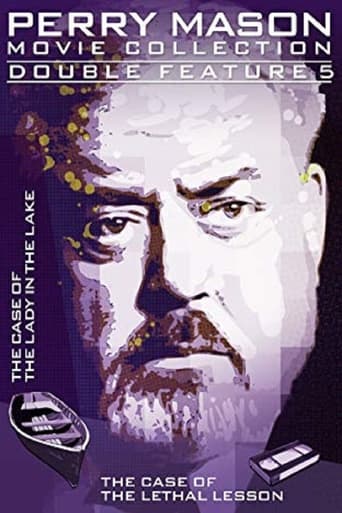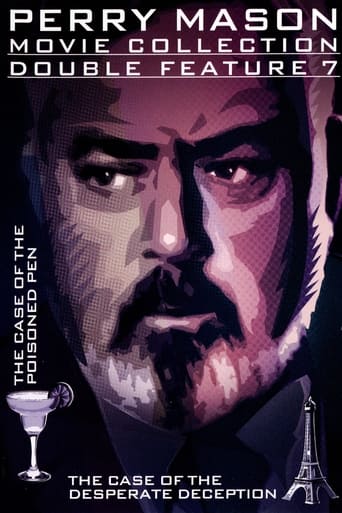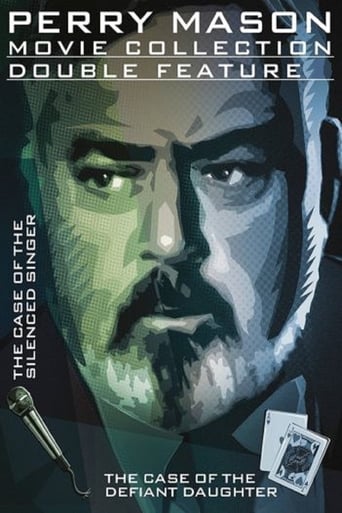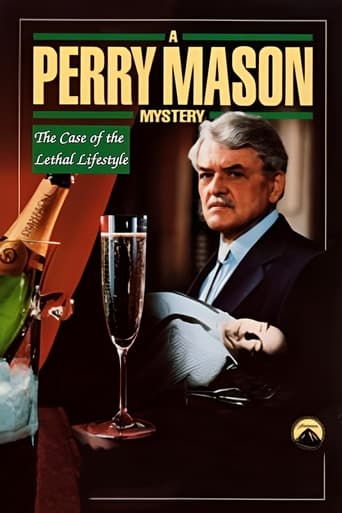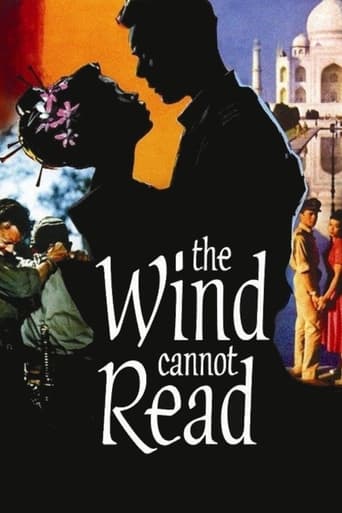
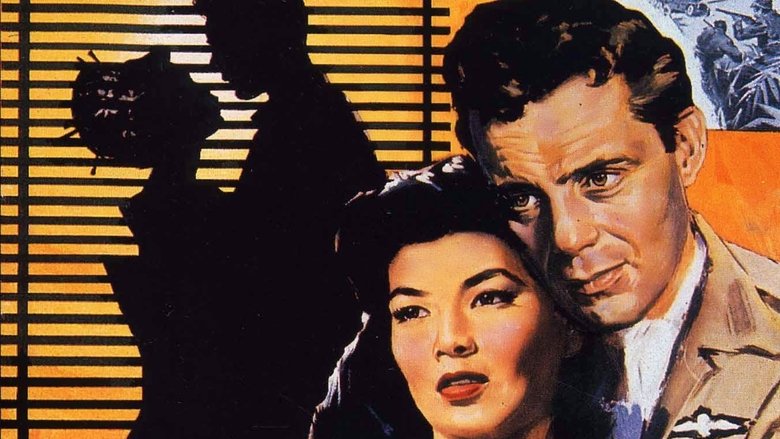
The Wind Cannot Read (1958)
A British officer falls in love with his Japanese instructor at a military language school. They start a romance, but she is regarded as the enemy and is not accepted by his countrymen.
Watch Trailer
Cast
Similar titles

Reviews
Fun premise, good actors, bad writing. This film seemed to have potential at the beginning but it quickly devolves into a trite action film. Ultimately it's very boring.
The film makes a home in your brain and the only cure is to see it again.
an ambitious but ultimately ineffective debut endeavor.
The acting is good, and the firecracker script has some excellent ideas.
A very beautiful melodrama of tragic love set in India in some of its most enchanting places (including Taj Mahal, of course,) under the shadow of the war with Japan. Dirk starts off escaping from them in Burma and ends up their prisoner once again. Between his ordeals he experiences an ideal romance with a Japanese girl who teaches Japanese to intelligence soldiers, one of whom is Dirk. The class sequences are almost the best of the film. Charming music embellishes the film and wraps it up in bitter-sweet romance which never gets too sleazy, since there are constant complications.It's an odd film for Dirk Bogarde and a very singular war and love story, very much akin to William Holden's war and love experiences in Korea and Hongkong, but this is both more idyllic, more intimate and more personal, since Yoko Tani is a more Madame Butterfly kind of girl, more sensitive and vulnerable, and Dirk is delicate enough to treat her with care. so he doesn't make matters worse, as he did in "Simba".The film leaves you with a few question marks, though. Whatever happened to the miserable Fenwick? You can only suppose the worst. But the worst gaffe is the tremendous mistake of Brigadier Anthony Bushell not to immediately turn back when he sees an obvious booby-trap on the road, a dreadful tactical mistake, which no qualified Brigadier would have risked committing. But then without that goof, there would have been no great finale to the melodrama.The most beautiful detail of the film is the symbology, though, which doesn't become clear until afterwards. A sign says that you may not pluck cherry blossoms while they bloom, but the wind cannot read and plucks them anyway, one of those enigmatic but most appropriate Japanese philosophical adages as a motto for the whole film.
Flight Lieutenant Michael Quinn (Dirk Bogarde) has seen a lot of action in the RAF and is itching for something different. So he volunteers for duty with Army Intelligence and goes to school to learn the Japanese language. However, a problem develops when a pretty Japanese language instructor, Sabbi (Yôko Tani) arrives. She and Michael fall in love and marry. So why is this a problem? Well, he never asked for permission to marry through military channels--and might result in him being severely disciplined. So, they keep their marriage a secret and hope for the best. But there are two problems. First, there is an officer who is a total jerk and could LOVE to see Quinn in hot water. Second, something is wrong with Sabbi...something she hasn't told her husband. and then, there's a third problem which comes along a bit later. What's next? Well, see the film and find out for yourself.What I appreciate most about this film is that it is unique. There must have been a bazillion war movies but so many of them have a sameness about them...but not this one. Well acted, well made and very engaging...this one's worth your time.
During World War II, the beauty Aiko Clarke, was one of the several Japanese who taught at the University of London's School of Oriental and African Studies(SOAS). She was immortalized by one of her students, Richard Mason, the author of The World of Suzie Wong, in his first novel The Wind Cannot Read.The Japanese instructors had to be accompanied by SOAS students for their protection, on outings in London. The instructors also taught respect for Japanese culture and life. Otome Daniels's parting words to pupils leaving for India were 'please look kindly on my people'.Mason served in the Far East in the Royal Air Force as an interrogator of Japanese prisoners-of-war. He did his writing in the evenings, often in temperatures of over 100 degrees and carried the manuscript in his jeep during the Burma Campaign.
Dirk Bogarde's parts for Ralph Thomas are not among his best work,by a long shot.Drippy,the precedent user says ,and I can sadly find litlle fault with the opinion expressed.Besides ,the screenplay seems to have been written by chance:in its first part,the movie is pure bad soap opera,in the wake of Logan's superior "Sayonara"(1957) -the Japanese tongue is one of the most difficult in the world,but after a few weeks,Bogarde and his mates can speak in a very workmanlike way-where implausibilities abound (the female teacher is not the least one!).But the second part,which is roughly a war movie, verges on incoherence:there's the obligatory wicked cruel Japanese officer,and the bad news about Bogarde's love comes at the most awkward moment.This leads to an ending à la "a farewell to arms".The "poetic" prologue and epilogue are overkill.This forgotten movie has gone with the wind,which,as anybody knows,cannot read.
